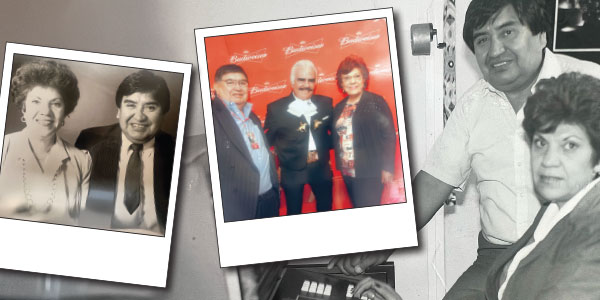
I always remember a patient who used to tell me, “I want the orgasms I had at the beginning of the relationship. I refuse to lose them and it’s not the same anymore.” Every day, more women tell me the same. However, we almost never are facing a sexual problem, but a communication problem.
Sex is communication. If we don’t communicate the things that we like, we are hardly going to be able to communicate our feelings like passion, desire and tenderness. And what is sex without these feelings? It’s something extremely boring and unrewarding.
What I’m trying to explain is that it’s not good, nor emotionally healthy, not to say what we feel to our partner. It doesn’t matter if what we feel is anger, pain, anguish and frustration, or, on the other hand, tenderness, affection and love.
If we want to preserve positive feelings, those same ones we felt at the beginning of the relationship; if we want to preserve the magic, craziness, and passion, we have to express both the negative and the positive feelings.
There are two big problems in relation to this:
1. We are taught not to express our feelings. Men especially are taught that “boys don’t cry.” As a result, we learn to block what we feel and even feel ashamed of our emotions.
2. Usually, when we want to talk about difficult feelings, we end up complaining, fighting and blaming others for the problems. Criticism is a poison that prevents good communication. If you are going to criticize your partner, better shut up and go for a long walk.
The most important part is that we have to say what we feel, but we have to learn how to say it. It’s not what we say, but how we say it. And this is true for everyone: parents, children, friends, relatives, etc.
It’s extremely hard to control ourselves when we are upset. If you can’t do it, write a letter to your partner explaining how you feel. Don’t give it to them until you are calmer and re-evaluate the letter. This will help you let off steam and put your ideas in order. When you feel in control of your negative emotions, express them without hurting or insulting.
As a golden rule: never fight with the person you’re having sex with. With that special person, you negotiate, express the pain, reach agreements, and seek solutions to conflicts, without hurting each other. If not, don’t ask for orgasms “like at the beginning of the relationship.” Don’t ask for magic. You will have to settle with routine and monotony. And please, don’t blame sex or marriage!
¿Por qué se pierde el deseo en la relación de pareja?
Siempre recuerdo a una paciente que me decía: “Yo quiero mis orgasmos de los primeros años de relación. Me niego a perderlos y ya no es igual”. Cada día más mujeres me dicen lo mismo. Sin embargo, casi nunca estamos frente a un problema sexual, sino a un problema de comunicación.
El sexo es comunicación. Si no comunicamos las cosas que no nos gustan, difícilmente vamos a poder comunicar los sentimientos hermosos como la pasión, el deseo y la ternura. ¿Y qué es el sexo sin estos sentimientos? Algo sumamente aburrido y poco gratificante.
Lo que estoy tratando de explicar es que no es bueno, ni sano emocionalmente hablando, el no decir lo que sentimos a nuestra pareja. No importa si eso que sentimos es rabia, dolor, angustia y frustración o muy por el contrario, ternura, afecto y amor.
Si queremos conservar los sentimientos positivos, esos mismos que sentíamos cuando empezó la relación, si queremos conservar la magia, la locura y la pasión, tenemos que expresar tanto los sentimientos negativos como los positivos.
Existen dos grandes problemas con relación a esto:
1. Nos educan para no expresar los sentimientos. Sobre todo a los hombres les enseñan que “los hombres no lloran”. Como resultado de esto, aprendemos a bloquear lo que sentimos y llegamos hasta a avergonzarnos de nuestras emociones.
2. Normalmente, cuando queremos hablar de sentimientos difíciles, terminamos quejándonos, peleando y culpando al otro o a los demás de los problemas. La crítica es un veneno que impide lograr una buena comunicación. Si va a criticar a su pareja, mejor cállese y váyase a caminar por un buen rato.
El punto más importante es que tenemos que decir lo que sentimos pero tenemos que aprender a decirlo. No es sólo lo que se dice, sino cómo se dice. Y esto es válido para todo el mundo; padres, hijos, amigos, familiares, etc.
Es sumamente difícil controlarnos cuando estamos molestos. Si no lo puede hacer, escriba una carta a su pareja donde le explique lo que siente. No se la entregue hasta que no este más tranquilo y vuelva a evaluarla. Esto le servirá para desahogarse y poner sus ideas en orden. Cuando se sienta en control de sus emociones negativas expréselas pero sin herir, ni insultar.
Como regla de oro: Nunca pelee con la persona con quien tiene relaciones sexuales. Con esa persona tan especial para usted, se negocia, se expresa el dolor, se llega a acuerdos y se busca solución al conflicto, sin herirse mutuamente. De no ser así, no pida orgasmos “como al principio de la relación”, no pida magia. Deberá conformarse con rutina y monotonía. ¡Y por favor, no culpe de ello al sexo, ni al matrimonio!










